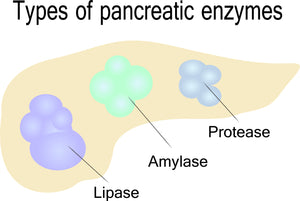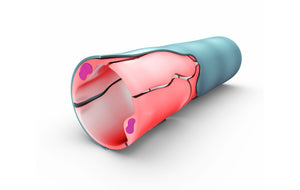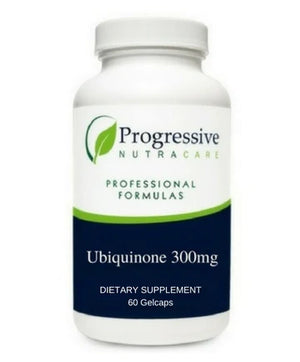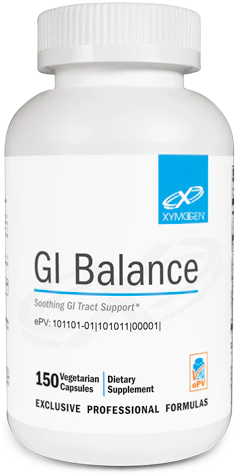Alpha Lipoic Acid – The Other ALA that Works Against Neuropathy

This powerful antioxidant, Alpha Lipoic Acid, is found in foods like liver, kidneys, broccoli, yeast, spinach, and potatoes. It's a great supplement to add to your diet if you’re looking to help control the signs of aging, diabetes, neuropathy – and it might even help with weight loss!
What is Alpha Lipoic Acid?
Alpha-lipoic acid is an antioxidant, sometimes referred to as Acetate Replacing Factor. It's a naturally occurring fatty acid found in many different types of food and our bodies can produce some of it naturally. Alpha-lipoic acid is both hydrophilic and lipophilic, which means it can work in both water and fat-soluble medium. It can basically go anywhere on our body and function as an antioxidant.

It should not be confused with alpha-linolenic acid; the omega-3 fatty acid commonly referred to as ALA. While both of these act as antioxidants and are types of fatty acids, they have very different functions in the body.
The primary use of alpha lipoic acid helps the body break down carbohydrates and convert those carbohydrates into energy. It's especially effective against cellular damage, particularly in nerve cells. For people with diabetic neuropathy, alpha lipoic acid can help improve the ability of the neurons to conduct impulses. As an antioxidant, it helps regenerate vitamin E and vitamin C.
Alpha Lipoic Acid for Antioxidant Support
Aside from alpha-lipoic acid’s ability to revitalize vitamin C and vitamin E, it is also considered an essential cofactor of glutathione production. Glutathione is an antioxidant that mainly targets peroxides and heavy metal oxidative factors within the body. It has tentative research showing it may help prevent cancer, liver damage, dementia, and other degenerative diseases.
Alpha lipoic acid supports glutathione by stimulating the enzyme gamma-glutamylcysteine ligase necessary in the synthesis of glutathione. It can also increase the cellular uptake of cysteine, one of the limiting factors for glutathione production.
After glutathione is used in the body as an antioxidant, alpha-lipoic acid helps return the oxidized form of glutathione into its reduced, active form, sending it back out to do its job as an antioxidant again. Alpha lipoic acid might also be a nitrogen scavenger, reducing the nitric oxide free radical species.
As a final antioxidant activity, alpha-lipoic acid directly binds with copper, iron, lead, and cadmium in the body, helping to remove the heavy metals from our system. Some research shows that alpha lipoic acid may bind with mercury in the brain. However, there’s not enough research yet to show that alpha lipoic acid works as a chelating agent or helps significant heavy metal toxicity.
Alpha Lipoic Acid Benefits & Side Effects
Alpha lipoic acid is safe when used as directed. When part of your diet, foods like red meats, organ meat, green leafy vegetables, broccoli, tomatoes, Brussel sprouts, and potatoes are the best way to get in your antioxidants. They contain dozens of vitamins, minerals, and antioxidants we need.
When you choose a supplement, you’re getting a much higher and concentrated dose of alpha lipoic acid. It’s best to take a supplement on an empty stomach, as certain foods can lower its bioavailability and could cause nausea.
The generally accepted dosage alpha lipoic acid is 300 to 600 mg per day to improve general health.
If you are using alpha lipoic acid to help treat any condition, you need to follow the advice of your doctor and follow their directions. Some doctors may prescribe the supplement at much higher dosages, and they may advise you that a higher dosage could interact with medications. Be sure to follow the advice of your physician.
Although generally considered safe, some people may experience lower blood sugar when taking the supplement. As we discuss below, by using alpha lipoic acid when you have diabetes, the supplement can help improve blood sugar metabolism, which may cause excessively low blood sugar in people without diabetes.
Some people have reported minor interactions with medications for blood sugar control, aspirin, and medications to control heartburn (Omeprazole).
Alpha Lipoic Acid for Diabetes
Alpha lipoic acid helps lower blood sugar, and in some studies, as much as 64%. That’s a significant reduction and can help reduce lower insulin resistance, fasting blood glucose, and A1C levels. It's believed that alpha lipoic acid helps lower the amount of fat that has poorly accumulated in muscle and inhibits insulin effectiveness.
Antioxidant properties may also help people who have prediabetes avoid moving into the diabetic category. When working to increase blood sugar metabolism, the body can take care of sugars more effectively.
Doctors also know that the effects are more prominent when people follow a diet that’s lower in carbohydrates. The fewer sugars that are in the body, the easier it is for the alpha lipoic acid and the body to take care of those sugars.
Alpha Lipoic Acid for Weight Loss
While it might not have a significant impact on weight loss, alpha lipoic acid helps in a more round-about way. In various studies, some people who took the supplement lost an average of 1.5 pounds more than those taking a placebo over 14 weeks.
An additional study showed that over 23 weeks, people who took alpha lipoic acid lost 2.78 pounds more than the placebo group. Over five months, 3 lb is not a significant amount, but weight loss is an added benefit to all the other good things this does in the body.

The primary mechanism for weight loss is the suppression of the AMP-activated protein kinase. The more activated AMPk there is, the hungrier you feel. So, when alpha lipoic acid helps suppress this activity, you're less hungry – and when you aren’t hungry, you make better choices.
Other Health Benefits of Alpha Lipoic Acid
Because of the antioxidant potential of alpha lipoic acid, it can help many health conditions. But, just because it helps doesn’t mean it can replace medication or provide a lifesaving difference. Many other supplements are much more useful for things like high blood pressure, digestive problems, immune support and heart disease.
Alpha lipoic acid is very good for some things, however. Anti-aging, diabetes, and inflammation markers reduce when taking alpha lipoic acid.
Alpha Lipoic Acid For Skin
Several studies show that increasing healthy fats help skin elasticity and reducing the signs of aging, such as fine lines, wrinkles, and splotching. In conjunction with the glutathione reactivation, the antioxidant capacity of alpha lipoic acid helps reduce skin damage and the signs of aging.
When alpha lipoic acid gets added to skin creams, it helps reduce wrinkles and offers protection against UV radiation.
Alpha Lipoic Acid Nerve Pain And Neuropathy
Alpha lipoic acid is effective at helping protect the myelin sheaths around the nerves, which can help reduce pain caused by diabetes and slow the onset of neuropathy. Although taking the supplements cannot reverse the damage, it can help mitigate some of the side effects.
Other studies show that the pain and numbness caused by carpal tunnel syndrome reduced when supplementing with alpha lipoic acid. Additionally, taking the supplement before and after surgery for the carpal tunnel improves the outcome. Doctors suspect the alpha lipoic acid helps the body repair the damage done by the pinched nerve and surgery.
Alpha Lipoic Acid And Inflammation
In people who experience inflammation because of arthritis, autoimmune issues, and injury, alpha lipoic acid may help reduce the markers for the C - reactive protein. This is especially interesting to doctors who study the brain, as some of the markers for inflammation and free radical damage connect to Alzheimer’s disease.
One of the study areas for alpha lipoic acid and inflammation is in the connection to the autoimmune condition Hashimoto’s Thyroiditis.
Alpha Lipoic Acid Side Effects Thyroid
Alpha lipoic acid effect on inflammation and the inhibition of the NF-kB signaling pathways that signal the need for inflammation are lower when taking alpha lipoic acid. Other studies also show that endothelial dysfunction associated with Hashimoto’s Thyroiditis improves when taking alpha lipoic acid.
If you have thyroid issues, you should discuss with your rheumatologist the specifics for taking alpha lipoic acid. Some studies show that alpha lipoic acid can reduce the conversion of T4 to T3 when taking certain medications. Some clinicians recommend taking your thyroid medication and the supplement at least four hours apart to avoid this problem.
How To Take Alpha Lipoic Acid
The best time to take alpha lipoic acid is on an empty stomach, preferably earlier in the day. This gives the body a chance to work the antioxidant through your system when it is most effective. The average dose is 300 to 600 mg per day, although as much as 1,200 mg per day were used in some clinical studies. Do not take this supplement alongside medications.
The best alpha lipoic acid foods are organ meats, yeasts, broccoli, tomatoes, potatoes, cabbage, spinach, and other green leafy vegetables. In general, two servings of these types of foods per day will provide the average person their daily needs about lipoic acid.
However, if you are experiencing health difficulties, such as diabetes or excessive weight, adding an alpha lipoic acid supplement may be beneficial. Be sure to talk to your doctor before starting the supplements if you have any health problems or are taking medications to avoid side effects.
- Nutracare Team







Comments 11
Karen
Look under nutritionist and order a time released pill.
c greene
I take 2 caps (1200) mg daily for small fiber neuropathy in feet. ALA helps a great deal. I was paying $ 69 monthly for a popular Neuropathy pain remedy that didn’t work well. I read the label for ingredients and most of the pill consisted of 600 mg of Alpha Lipoic Acid. I stopped the order and now take 1200 mg daily which works and is a whole lot cheaper buying online!
Craig
To Jim: You were taking too much alpha lipoic acid at 600mg daily. You need to reduce your daily dosage in 1/3 to (200mg) to maximum 1/2 (300mg) daily to achieve a balance in med. Also, check your other meds to avoid potential drug interactions and consult your physician prior hand !
John Haddadin
Hello Jim
I take 1/2 tea spoon of red mill baking soda ( Aluminum’s free )with 8oz of water to stop any discomfort or acid reflux
Joanne Crawford
Can I take both Alpha Lipoic Sustain 300mg and R-Lipoic Acid 300mg each day
Michael R Null
Acid reflux is generally caused by insufficient stomach acid. You can treat this with Betaine HCL which is available as a supplement. Hope this helps
John Woo
Apple Cider Vinegar will help (Very effective for Acid reflux)
Sue Aya
Were you taking it on an empty stomach or with food? In divided doses or all at once? Maybe experiment to see if changing that sort of thing makes any difference. Also I am curious to know how it helped your neuropathy?
anita
I used apple cider vinegar for acid reflux. One capful in a glass of water every time it happened. this will reset your stomach acid. I have been off meds for 8 years. I occasionally will have it from eating sweets. I than just take a little baking soda in water but, acv is what is needed to fix the problem. Maybe this will work for you. Acv is good for you regardless so it wont hurt anything to take it.
Shannon
Jim, I saw your comment about indigestion. I use Bitters for my stomach problems. It’s a dark liquid you can buy at most liquor stores, because it is used to add flavor to certain drinks. The type you want to get is either the one made from Cloves or the aromatic type. It’s basically a potent extract of Cloves and other roots and spices that works better than any medicine I’ve ever taken. You simply add a dash of it into a small amount of gingerale or club soda and drink it. This just dilutes the strong flavor. The Clove type even took my made my sciatica induced nausea away within seconds. It’s pretty strong stuff, I can tell you that! I am not easy to nauseate, so if back pain made me nauseous, it was a pretty severe case of nausea. I was incredibly impressed at the strength of this stuff. Cloves pretty much paralyze your "upset " nerves in your stomache. The Aromatic type works well, too, but the ingredients are still a secret formula, and you can read up on it on Wikipedia…look up Angostura Bitters. I can guess it has cloves and ginger as main ingredients, though, since they are known for treating stomache ailments. Try this and see if it helps!
JIm
I was taking 600mg of ALA once a day. It helped my neuropathy quickly. However it caused bad reflux and indigestion. I had to quit taking it. Is there a brand or something I can do (other than take Pepcid) to help this.